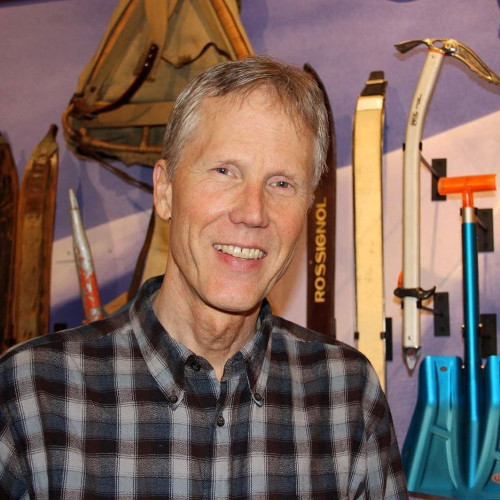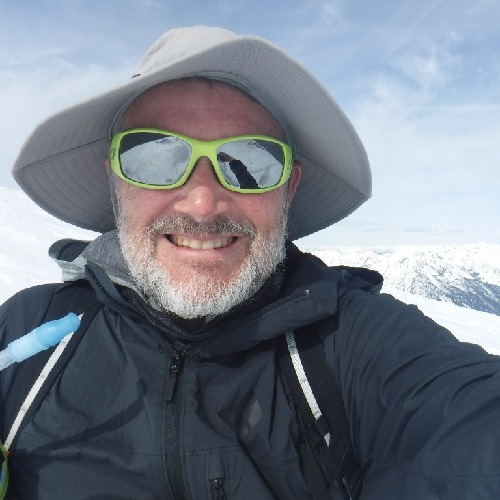- Posts: 94
- Thank you received: 0
The topic of global warming: twice is nice.
- skip
- [skip]
-
 Topic Author
Topic Author
- Offline
- Junior Member
-

Please Log in or Create an account to join the conversation.
- hyak.net
- [hyak.net]
-

- Offline
- Premium Member
-

- Posts: 601
- Thank you received: 0
Please Log in or Create an account to join the conversation.
- skip
- [skip]
-
 Topic Author
Topic Author
- Offline
- Junior Member
-

- Posts: 94
- Thank you received: 0
Please Log in or Create an account to join the conversation.
- Paul Belitz
- [pbelitz]
-

- Offline
- Junior Member
-

- Posts: 172
- Thank you received: 0
Please Log in or Create an account to join the conversation.
- skykilo
- [skykilo]
-

- Offline
- Senior Member
-

- Posts: 304
- Thank you received: 0
Please Log in or Create an account to join the conversation.
- Jim Oker
- [jim_oker]
-

- Offline
- Elite Member
-

- Posts: 900
- Thank you received: 0
Please Log in or Create an account to join the conversation.
- ski_photomatt
- [ski_photomatt]
-

- Offline
- Junior Member
-

- Posts: 141
- Thank you received: 0
Please Log in or Create an account to join the conversation.
- ski_photomatt
- [ski_photomatt]
-

- Offline
- Junior Member
-

- Posts: 141
- Thank you received: 0
Please Log in or Create an account to join the conversation.
- zenom
- [zenom]
-

- Offline
- New Member
-

- Posts: 33
- Thank you received: 0
Please Log in or Create an account to join the conversation.
- Jim Oker
- [jim_oker]
-

- Offline
- Elite Member
-

- Posts: 900
- Thank you received: 0
Please Log in or Create an account to join the conversation.
- Amar Andalkar
- [andalkar]
-

- Offline
- Premium Member
-

- Posts: 635
- Thank you received: 0
<br><br>Well hold on, that's not quite true. A few thousand years ago (5000-8000 years ago), this area was much warmer and all glaciers in the lower 48 disappeared, except perhaps high on the northern Cascade volcanoes. <br><br>The last Glacial period (Ice Age) ended around 13000 years ago, and the ice sheet in Puget Sound vanished very quickly during the following Interglacial period. The climate warmed to several degrees warmer than it is currently, peaking around 6500 years ago. The climate cooled around 4000 years ago, the start of the Neoglacial period, during which most current glaciers in the lower 48 re-formed. The coldest time since the last Glacial was probably the recent Little Ice Age, roughly 1500-1850, during which glaciers reached their maximum sizes since the last Glacial. So the trend toward less snow and ice is only the past 150-200 years.<br><br>(These numbers are all off the top of my head, but they are approximately correct.) <br><br>I just wanted to quickly clear that issue up, I don't really feel like discussing global warming right now.<br>... A few thousand years ago this area was completely under glaciers, right? Change is certain, and the recent historical trend (few thousand years) has been toward significantly less snow here. ...
Please Log in or Create an account to join the conversation.
- hyak.net
- [hyak.net]
-

- Offline
- Premium Member
-

- Posts: 601
- Thank you received: 0
Please Log in or Create an account to join the conversation.
- Jeff Huber
- [Gaper_Jeffey]
-

- Offline
- Senior Member
-

- Posts: 371
- Thank you received: 0
Please Log in or Create an account to join the conversation.
- hyak.net
- [hyak.net]
-

- Offline
- Premium Member
-

- Posts: 601
- Thank you received: 0
<br><br>The credit for skistreak is right on the photo, I did not try to hide it. I had no idea where the original photo came from so I could not give it the credit it deserves. <br><br>Very very unlikely that the pictures would be taken at the tail ends of the months as you mention. The facts are in the photo's and thanks for skistreak for posting them with the info. a couple years ago! <br><br><br>Hyak, do you have permission from skistreak to stick those photos and his text on your website? At the very least you should credit where the first photo came from (it's from the Timberline lodge museum -- they have real seal skins there too!). It's unforunate the actual dates of the photos aren't listed. Without the actual dates, it's possible the first photo was taken August 31st and the 2nd and 3rd August 1st. <br><br>I'm glad photomatt was able to provide the background on Skip's models -- thanks Matt.
Please Log in or Create an account to join the conversation.
- Jim Oker
- [jim_oker]
-

- Offline
- Elite Member
-

- Posts: 900
- Thank you received: 0
ourworld.compuserve.com/homepages/hopkinson/GLAC_BOW.HTM
www.easternsnow.org/proceedings/2001/Hall_1.pdf
(close to home)www.nps.gov/noca/massbalance.htm
geowww.uibk.ac.at/glacio/RESEARCH/RWENZORI/
etc.
And if you want to dig up some of your own to try to "prove" your POV, a stash of historical glacier photos can be found at: nsidc.org/data/g00472.html.
Please Log in or Create an account to join the conversation.
- moeglisse
- [moeglisse]
-

- Offline
- New Member
-

- Posts: 18
- Thank you received: 0
Please Log in or Create an account to join the conversation.
- Lowell_Skoog
- [Lowell_Skoog]
-

- Offline
- Platinum Member
-

- Posts: 1460
- Thank you received: 16
You may have seen the Wenatchee World article from last autumn which predicted that the South Cascade Glacier (in the pictures) may disappear within 100 years. It was discussed over in CascadeClimbers.com, as I recall.
Please Log in or Create an account to join the conversation.
- Randito
- [Randito]
-

- Offline
- Elite Member
-

- Posts: 960
- Thank you received: 1
Please Log in or Create an account to join the conversation.

